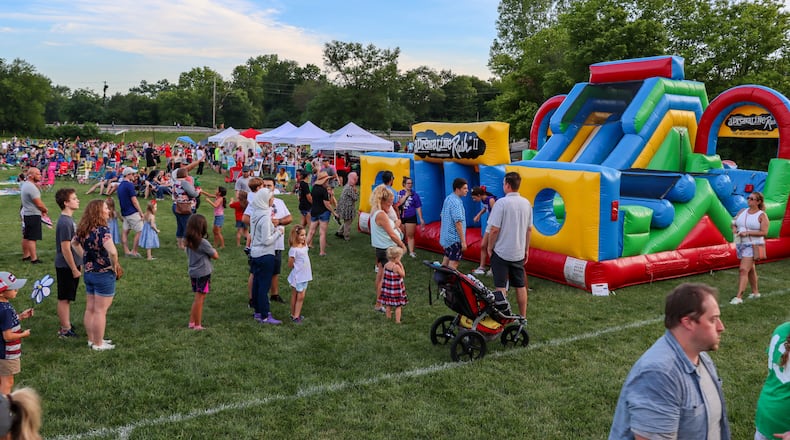The levy would go toward hiring three additional full-time employees: two parks maintenance workers and a staff member for the Senior Center to assist with transportation and daily operations.
The levy would also allocate about $200,000 for replacing equipment, park facility improvements, and enhancements to comply with the Americans with Disabilities Act, according to the city.
Voters rejected a 1.93-mill levy in November 2023 that would have funded the development of Spring House Park, the city’s newest park land, plus base infrastructure, amenities, and park staff.
The levy on this year’s November ballot is only for park operations, and does not include funding to develop Spring House Park.
Though the city’s extensive plans for Spring House Park have yet to be realized, the parks department alongside local volunteers have cut extensive forested hiking trails on the 148-acre property, which can be enjoyed by residents.
The new 0.49-mill tax levy option was the middle of three options that Beavercreek City Council considered for November. The higher end, a 0.73-mill option, would have allocated more money for capital improvements, and the lower amount, 0.25 mills, would have only maintained current park operations with inflation.
“In thinking through this, I’ve been between the 0.25 and the 0.49 for some time,” said Councilman Glenn Duerr. “But ... there’s a lot of work that needs to be done, and the one glaring area of the city government that is understaffed, in my view, is parks.”
The city’s current parks levy was created based on a five-year projection, the city said. Currently, the city’s parks division is fully funded through 2024, but without additional funding, the parks division’s expenses will exceed revenue by approximately $250,000 starting in 2025, according to the city.
The city’s parks division currently employs 13 full-time and six part-time staff, as well as approximately 20 seasonal employees, including camp counselors, interns, and maintenance staff, during the summer.
In all, parks staff manages 434 acres of parkland according to the city, which includes 24 parks, 16 playgrounds, and community hubs such as the Beavercreek Senior Center, Lofino Plaza, and C.I. Beaver Hall. Of those 24 parks, 21 of them are smaller, neighborhood parks, and three are large community hubs: Rotary Park, Dominick Lofino Park, and Spring House Park.
Demand for parks department programs has increased in the last few years. Program registrations have gone up from just over 4,500 in 2019 to 10,453 in 2023. Beavercreek parks had 600 registrations for summer day camp in 2024 and over 1,700 attendees in their summer concert series.
“Even with the support of park volunteers, who contribute approximately 30,000 hours annually, additional staff is required to maintain our current levels of service,” said Parks Director Zach Wike.
About the Author


